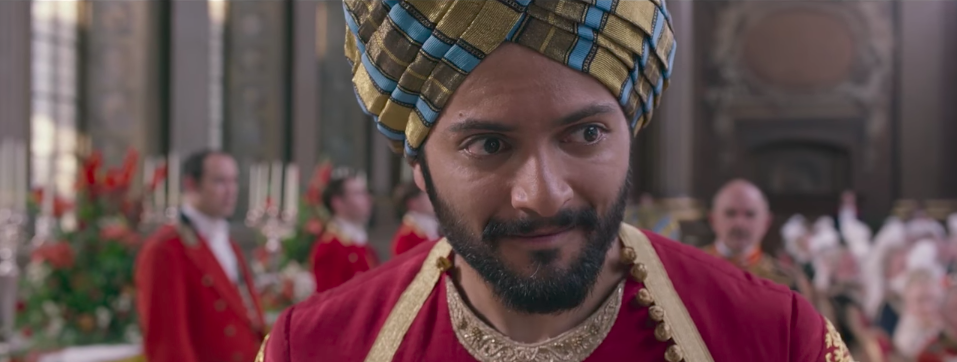The central problem with Victoria & Abdul isn’t its acting, nor is it the lack of complexity in the plot. It’s that it looks like a great movie — so much that I felt deceived by the trailer.
If you know me, you know that I love biopics about British aristocrats. The lavish costumes, the petty exchanges, the emotional liability — I live for that shit. So you can only imagine how excited I was to watch Victoria & Abdul.
Judi Dench reprising her role as Queen Victoria? And she reunites with Stephen Frears, director of The Queen? Sign me up.
The film, based on the true friendship between Queen Victoria (Judi Dench), and her Indian Muslim servant Abdul Karim (Ali Fazal), gets progressively worse as the relationship between the two deepens. The first scenes of the movie are filled with humor, excitement, and a wonderfully posh setting. Really, all that you could want in a royal drama. And then opening credits roll, and it only gets worse from there.
Abdul is chosen to take a coin minted in India in the queen’s honor and present it to her at a royal luncheon. Before the luncheon, he is given a list of rules about how to interact with the queen, the most important of which is to never make eye contact with her.
But of course he does anyway, which is the first — but not last — predictable move made by the film. Abdul, unable to contain his wonderment, goes as far as kissing our royal highness’ feet. To the royal household’s shock, she’s pretty into it, as material wealth cannot replace her longing for companionship and novelty.
Early on, the viewer is made aware of the racist gestures made by the English, who embellish Abdul’s outfit to make him “look more Indian.” But instead of unpacking the weight of this behavior on our male lead and on his native country, he is reduced to a servile pretty boy who aids the film’s grossly gentle portrayal of the Raj era.
While Dench doesn’t give a bad performance, her character’s identity in the film is laughable. The level of historical revisionism is intense, and you might find yourself thinking that the film was produced in a different century. Queen Victoria is portrayed as some progressive white knight for giving such favorable treatment to a servant despite the tension it stirs within the royal household. Abdul’s agreeableness, while cute at first, becomes vapid and does little to intrigue the viewer.
The public disapproval is the only complication the film offers, and eventually it feels redundant. Because of Victoria & Abdul‘s shallow nature, the viewer is forced to seek the film’s climax. With so much going on during this time period, you will struggle to understand how the makers failed to encapsulate the viewer.
1/4 Shells.



